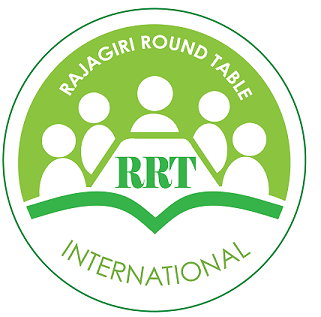Post Covid Schools Should Have Phygital and Open Learning Spaces
KOCHI: The post-Covid schools will have to innovatively adopt open learning spaces and phygital architecture as children dislike closed learning spaces and it is also not suited for physical distancing norms in view of the pandemic, according to experts who attended the 72nd Rajagiri Round Table Conference on Zoom Meet on the topic “Emergence of Phygital Learning Spaces.”
The blending of the physical spaces with digital spaces will ensure collaborative learning, foster creativity and team work, create marker spaces and each classroom can become a STEM (Science Technology Engineering Mathematics) environment, according to Pradeep P Veetil, leading Dubai based architect specialised in school design.
Monolita Chatterjee, a leading architect specialised in Leisure, Heritage and Urban Renewal in Kochi pointed out a survey among 100 students and equal number of teachers and parents conducted by students of KMEA College of Architecture showed that 95% of the children desperately want to get back to school as they are missing out on friends, games sports, social interaction affecting their socio-emotional skills development. And their most favourite spaces in the school were the parks and playground, thus necessitating the need for open classrooms and interactive spaces in campus.
Kavita C Das, Principal of St John’s High School, Chandigarh pointed out the dangers of having too much digital learning exposure for children that leads to obesity, attention deficit problems, cyber bullying loss of love and affection between children. Sunila Athley, Principal, Amity International School, Ghaziabad said that when schools reopen children should be made to come without school bags, books, pens or papers. Let them run around the play ground, shout in the corridors, fall and bruise elbow or knees, and get reconnected with friends. The counselors in schools need to provide emotional support as they have lost the ability to withstand peer pressure, face failures or involve in team work or some of them might have lost their dear ones.
Tresa Ann Cyriac, Creative Director of CD Infra Consultancy pointed out that with digital technologies learning can happen at both home and school environments while school should promote interactive activities that develop 21st century skills. The Phygital model should be focused more on interactivity rather than on fancy technologies.
The digital system should not be used to replace the physical but to enable children to have greater autonomy to decide on topics they want to work upon, collaborate with peers, empowering them with learning skills and how to learn with teachers becoming facilitators, said Joana Stella Kompa, University of Oldenburg, North Germany. Sreekumar Raghavan, Editor, Pallikkutam anchored the event attended by leading architects, school teachers and administrators, digital experts from India and abroad.

